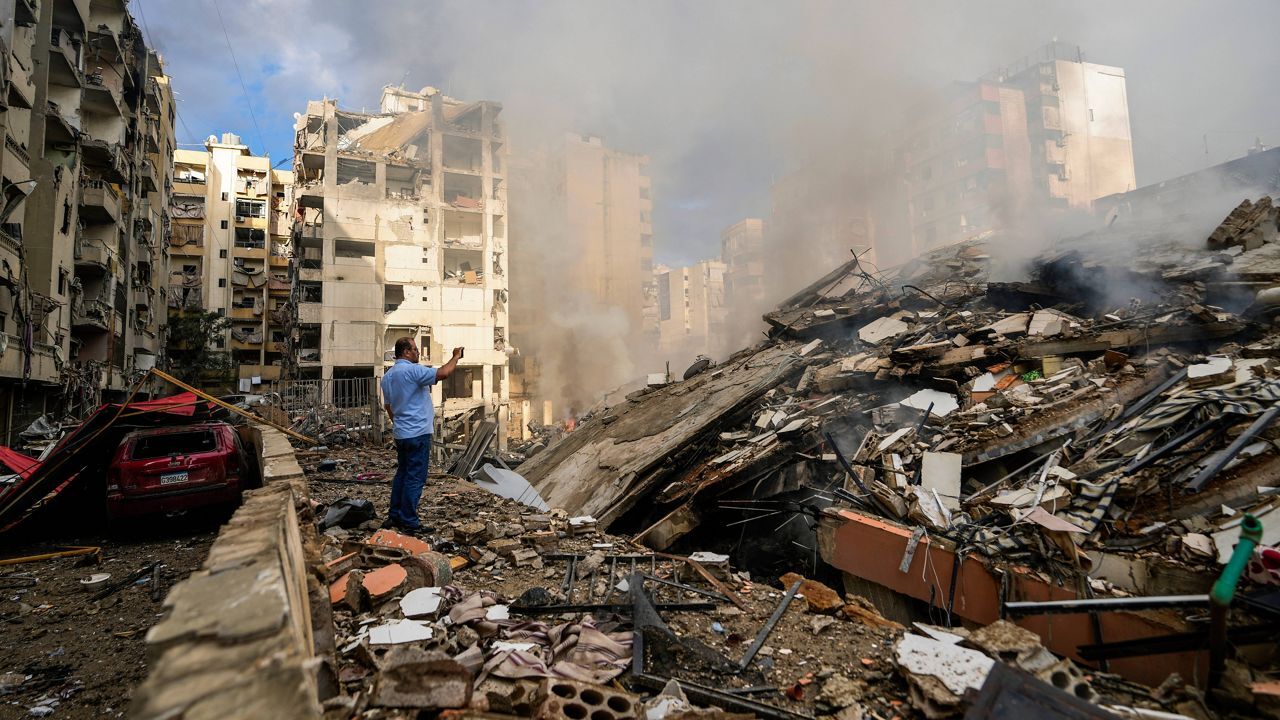The recent Israeli airstrike on a residential building in central Beirut has heightened fears across Lebanon, marking a significant escalation in an ongoing bombing campaign that local officials report has already resulted in over 1,000 fatalities.
Jihan Kaisi, the executive director of the Union of Relief and Development Associations, emphasized the dire situation, stating, “There’s no safe place guaranteed in Lebanon.” This attack has shattered the illusion of safety in the capital, with many civilians previously believing that central Beirut would provide refuge from violence.
The strike targeted the Cola area, a bustling neighborhood just a short distance from downtown Beirut. It is particularly alarming because many displaced families had sought shelter in this area, believing it to be a safer option.
The attack was the first on the city center since the 2006 conflict between Israel and Hezbollah, and it resulted in significant destruction. The Popular Front for the Liberation of Palestine reported that three of its members were killed in the strike, and eyewitnesses noted extensive damage, with rubble scattered across the streets and buildings heavily affected.
The humanitarian situation in Lebanon is deteriorating rapidly, with approximately 1 million people displaced due to the recent violence, according to the Lebanese prime minister. Many families have been forced to sleep on the streets or in makeshift shelters, lacking access to basic necessities.

Izdihar al Fouani, a resident who fled to central Beirut, expressed the hopelessness felt by many, stating they were merely waiting in uncertainty. This widespread displacement underscores the urgent need for humanitarian assistance and a cessation of violence.
As Israeli military operations intensify, fears grow of a broader conflict. Israeli officials confirmed that special forces had begun small-scale operations in southern Lebanon, aiming to gather intelligence on Hezbollah’s positions.
While these operations have been ongoing for months, they raise concerns about an imminent ground offensive. The United States continues to call for restraint to prevent further escalation, reflecting the precarious nature of the situation and the potential for regional instability.
With families struggling to survive amidst ongoing violence, the humanitarian crisis is becoming increasingly urgent. Many displaced individuals, like Fatima, who recently gave birth, are experiencing extreme hardships, including a lack of food and medical care.
Nayef Fouani’s story illustrates the abrupt disruption caused by the violence, leaving families in a state of confusion and despair. Kaisi warns that if the bombing campaign does not cease, Lebanon could face a situation akin to that in Gaza, where countless lives have been lost, amplifying the fears and anxieties of families across the region.


